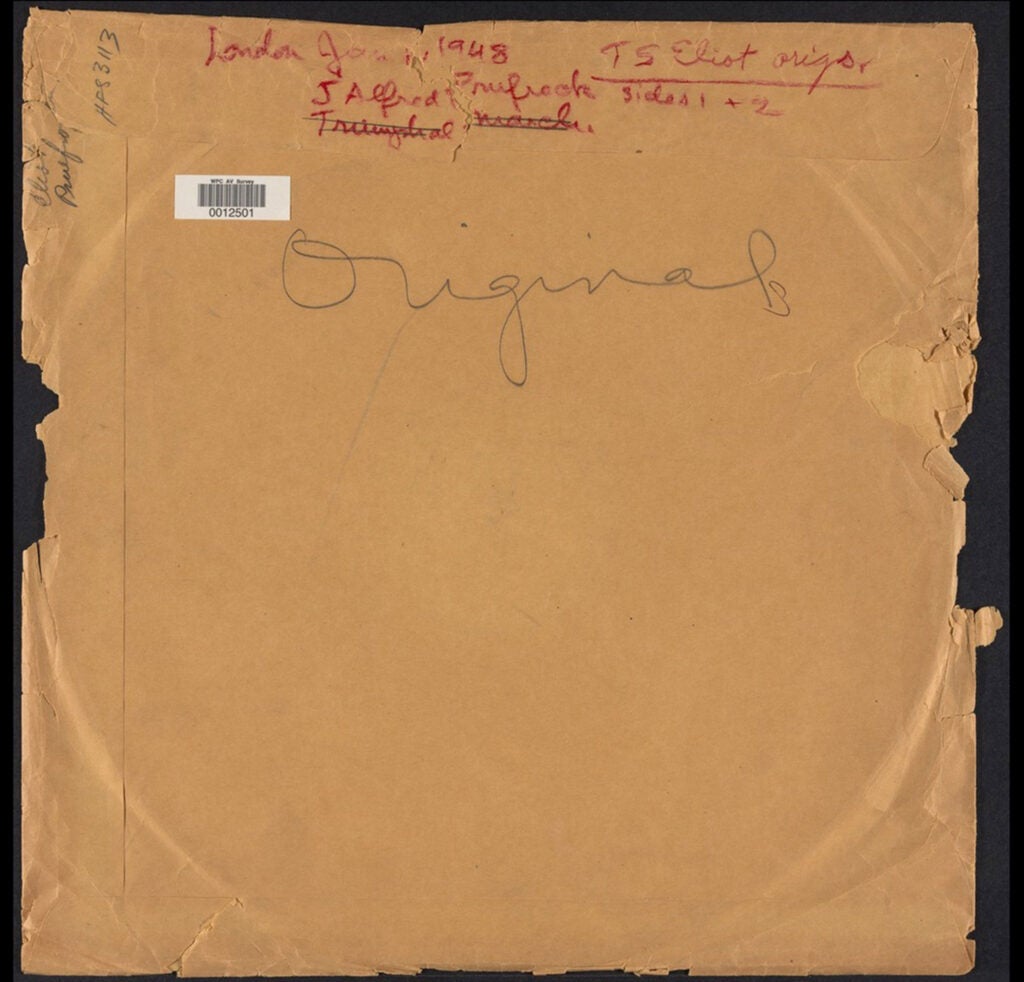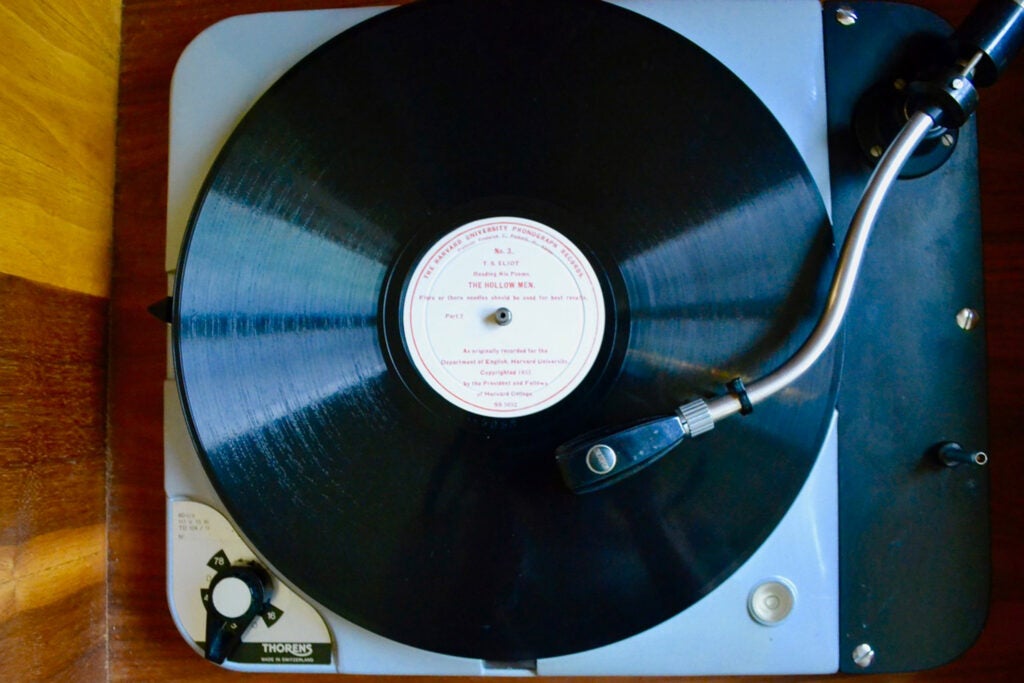That these recordings survive is noteworthy. The first, which was most likely pressed on shellac, was particularly fragile. “There’s a long history of recordings being broken in transit,” noted Davis.
Recorded during the Depression and then in the aftermath of World War II, together these recordings resonate today. “These were arguably equally challenging times,” said Davis. “But also, at the same time as inspiring and galvanizing technological changes in broadcasting were being made, which opened up these pathways of global communication similar to what we’re experiencing today.”
Eliot, said Davis, was an ideal subject for those early recordings. “His reading voice really developed then, as did a lot of the modernist poets’ over that period.” Calling him “the rock star of his period,” she said, “You begin to hear him building that capacity in this 1947 reading at Sanders Theatre.”
To Reihill, the passage of time between the two recordings is apparent. “The value of these recordings lies primarily in the document they provide of a poet’s encounter with work written by his younger self, a self which appears now a stranger to him,” she said. “Gerontion” had originally been published in 1920, “The Hollow Men” in 1925. “As Eliot says in his opening remarks: They feel as though they were by someone else,” Reihill continued. “In his voice, I think, one can hear a sort of resigned sadness tinged with self-deprecation.”
Of course, a live reading, like the 1947 Sanders recording, involves more than the poet. “The audience is half of the experience,” said Davis. “Sometimes you think of a poet as very formal and stuffy. And in fact, we discovered that they were funny to the audience at the time. And so there’s a real value to knowing what catalyzed people.”
In that live recording, especially, she pointed out, we are hearing history. “We discovered that John Ashbery, [later New York State poet laureate,] then a young undergraduate, was present” at the Sanders reading. “So when you’re listening to it, you’re also potentially listening to a cough or a laughter or the applause — or just detecting the breath — of the young John Ashbery.”
The recordings’ impact, however, comes from Eliot. To summon the power of a poem being read by its creator, Davis cited the recent case of Amanda Gorman reading “The Hill We Climb” at President Biden’s inauguration. “If they had posted Amanda Gorman’s poem on a screen on the steps of the Capitol, but she had not been present to read it, would it have had the impact?”

